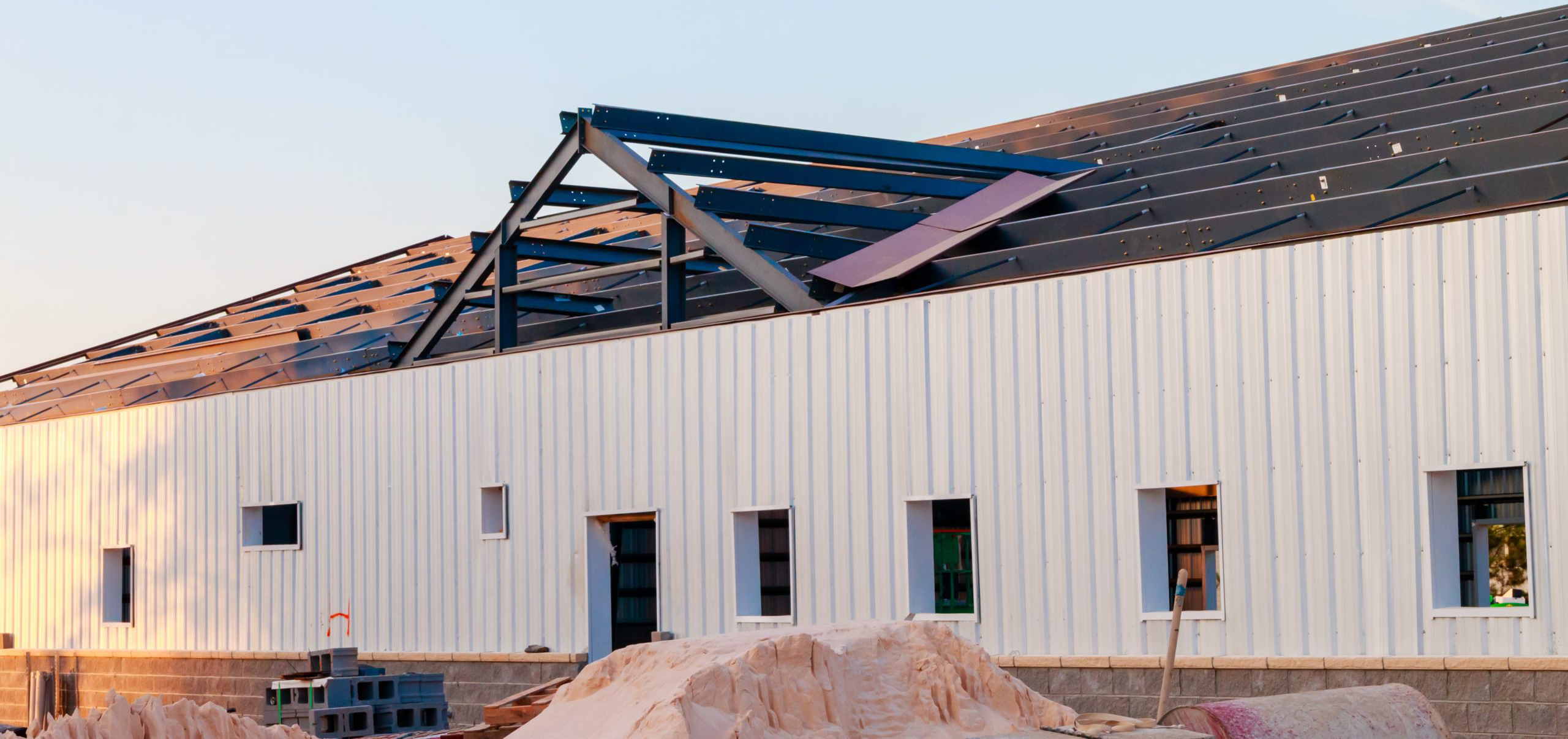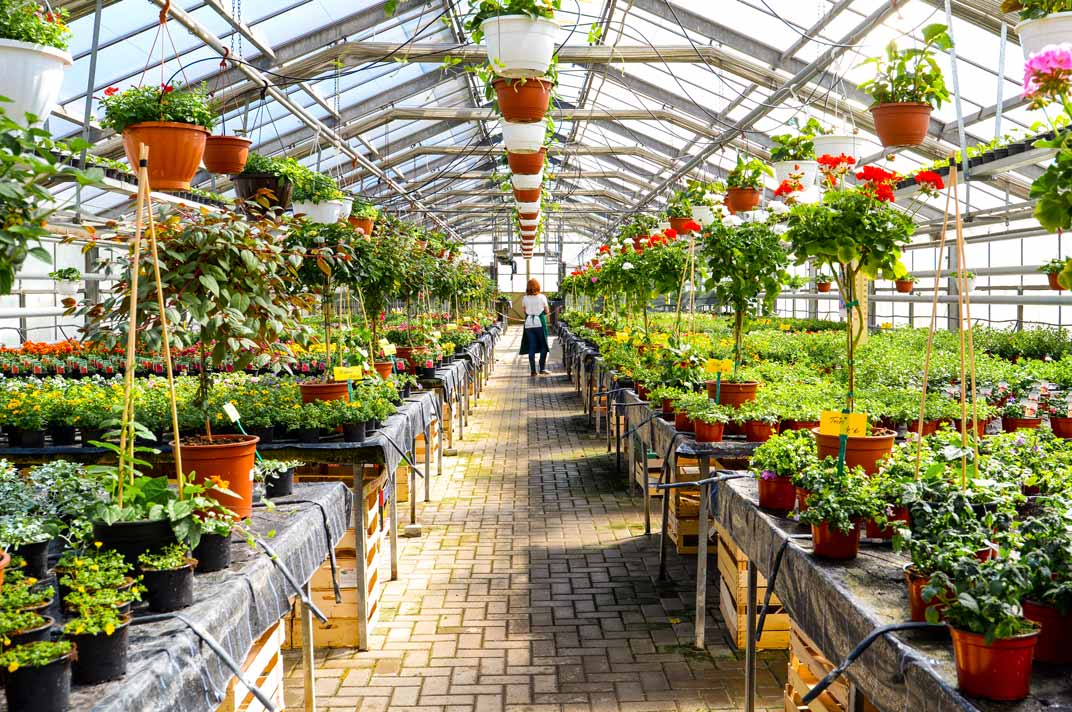There’s nothing as satisfying as seeing the fruits of your labor. And with owning a nursery or garden center, you can take that saying literally. We’re finally seeing a return to our roots as farmer’s markets and locally owned nurseries are once again favored over big box stores. But this article isn’t a propagation guide. If you’re looking for information on how to grow anything other than your business, start with a Farmer’s Almanac. Rather, you’ve reached the next article in our How to Start a Business series. We’ve talked about coffee shops, gyms, trampoline parks, and more. Today, we’re looking at the entrepreneurial side of a garden center – what does it take to get one started? How much will it cost? What decisions can you make early on to get a faster return on investment?
What’s the difference between a garden center and a nursery?
Before you jump into opening your new business, you must get fairly specific about the need that you’ll be filling in the community. For garden centers and other plant-based retail stores, you have lots of options for the variety of product and level of service that you offer.
Let’s break down a few of those here:
- Nurseries sell potted plants ready to be transplanted. You can narrow down the plants you sell by their intention. Some nurseries cater specifically to landscape design and may offer other design elements like water features, large ceramic pots, mulch, sod, and brick. Others may focus more solely on produce gardens, propagating seasonal fruits and vegetables for transplant.
- Garden centers may offer all the same potted plants, but also sell garden tools and equipment. Most garden centers also have professionals on staff to assist in garden design and plant health. You may offer delivery services to move larger plants that require equipment, like trees, sod, and soil.
- If plant care isn’t in your wheelhouse, but you would like to offer plant professionals a place to meet their customers, a community farmer’s market or garden center might be your ideal fit. In this scenario, the owner of the building rents out spaces to local farmers, gardeners, and artisans to set up for weekly markets. This option is wildly growing in popularity as open-air markets become trendy destinations. Consumers flock to these community markets because they offer access to professionals who can help them choose seasonal produce, make educated decisions about their gardens, and lend their keen eye for landscape design. But the best part for investors is these professionals aren’t on your staff. Rather than putting them on your payroll, they pay you in the form of booth rental fees. If you have more entrepreneurial spirit than a green thumb, this is more than likely your best option.
Where is the best place to open a garden center?
Municipalities often purchase trees annually to keep up with city landscaping. These contracts are highly sought after and can be a huge factor in the success of your business. But you still must target homeowners. Depending on your locale, you may look for contracts or customer loyalty with companies that manage properties, such as apartment complexes of landscaping companies for neighbourhood with a homeowner’s association. Otherwise, you’ll be catering to homeowners who do their own landscaping or keep backyard gardens. Do your research and be certain about the product and level of service your market will expect.
Either way, most garden centers make most of their profit selling hardy plants easy to maintain. Perennials and trees that require little maintenance will probably be your bread and butter, no matter your market. You can also make money with add-on services like delivery and installation, or compete with local landscaping companies by having your own landscapers on staff.
How much does it cost to start a garden center?
Starting a garden center can be very labor-intensive, even in the early phases of the startup. One of the initial expenses you should be prepared for is payroll. Most retail operations won’t need to worry about employees on the payroll until the doors are open, but that’s simply not the case for garden centers. If you choose the nursery or garden center options rather than the community market, you’ll need staff on hand right away to prepare the land and caring for your plants.
The initial costs associated with opening a garden center will include:
- – Real estate
- – Site work
- – A retail building and greenhouse, if necessary
- – Payroll
- – Startup plants, soil, and supplies
If you plan on warehousing your supplies, which you will more than likely need to do, it’s important to create a building that has a tight seal from the outdoors. This is where you must make smart decisions about your building materials. Organic building materials like wood are prone to pests, moisture, and settling. Most garden centers opt for prefabricated metal buildings for their retail operation and warehousing to maintain a controlled interior. Steel buildings are pest-resistant and insulated metal panels eliminate moisture and regulate temperature year-round. Once more, opting for metal over organic building materials is the best way to cut your long-term costs associated with building maintenance, such as part replacement, heating and cooling, and pest control treatments.
How do I market my new nursery or garden center?
Local flower shows and markets may be a great way to hand out free samples or stage a giveaway for homeowners and business owners who are looking for a hardy, reliable plants for their landscaping. With gardening and landscaping, most homeowners need a little coaching from a knowledgeable professional to understand what’s in season and when they should be planting. Direct mailers are a great way to educate and inspire the public.
If you’re opening a community garden center, the first people you’ll be marketing to won’t be the public, but small gardening and farming operations who are looking for a place to sell. It may be in your best interest to visit local farms and gardens directly.
Other articles you might find interesting:
- How To Start An Indoor Trampoline Park
- How To Start An Indoor Equestrian Riding Center
- How To Start A microbrewery
For more information on Prefabricated Buildings, CLICK HERE or give us a call 888-783-3535.
You can also reach us on Twitter at @coastalsteel.
Also, don’t forget to subscribe, share and comment!


